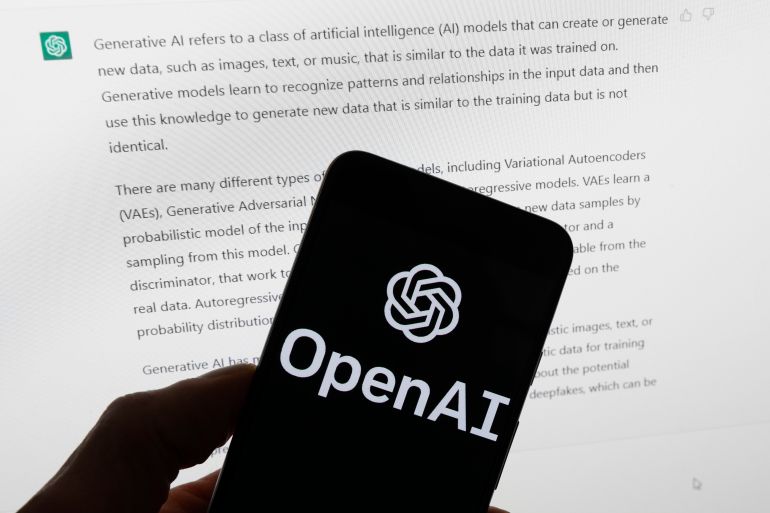OpenAI, the company behind ChatGPT, has made a significant announcement that the chatbot can now browse the internet to provide users with up-to-date information, marking a departure from its previous limitation of using data only up to September 2021.
On Wednesday, OpenAI, which is backed by Microsoft, disclosed on X (formerly Twitter) that it has enabled ChatGPT to access current internet information, surpassing its previous cutoff date. This capability, termed “Browse with Bing,” is currently accessible to users of the paid versions of ChatGPT, and OpenAI has plans to extend it to all users in the near future.
OpenAI had previously experimented with a feature that allowed users to access real-time information through the Bing search engine within the premium ChatGPT Plus offering. However, this feature was introduced in May but later disabled due to concerns that it might enable users to bypass paywalls.
The new integration bears similarities to Bard, a chatbot developed and launched by Google in March of the same year.
Alex Hanna, Director of Research at the Distributed AI Research Institute and former research scientist at Ethical AI at Google, pointed out that OpenAI is seeking to capture a portion of Google’s market share with this move.
Nevertheless, the introduction of real-time information access raised privacy concerns. The chatbot could potentially retrieve harmful content, misinformation, and copyrighted material from the internet and present it to users. Users are required to enable their chat history to make the new browser plugin function, which entails sharing personal data with the model.
Hanna raised concerns about potential data leakage, emphasizing that certain prompts might inadvertently reveal private information due to the secrecy maintained by these companies regarding their data sources.
OpenAI has stated that the latest feature will allow websites to exert control over how ChatGPT interacts with their content.
Hanna also cautioned that ChatGPT can sometimes generate hallucinations, misinformation, and inaccurate information. Furthermore, she noted that AI tools and search engines have been shown to perpetuate racial and gender biases, citing research like Safiya Noble’s book “Algorithms of Oppression,” which highlights disparities in search engine results for queries related to Black women and white women, exposing underlying racism and sexism in the algorithms.
Earlier in the week, OpenAI introduced voice and image features to ChatGPT, prompting mixed reactions from users. While some celebrated these updates, others expressed concerns about AI becoming overly human-like. There were also worries that such advancements might negatively impact smaller AI startups and software engineers. Additionally, there were reservations about the use of ChatGPT, including concerns about lawsuits against OpenAI for alleged copyright violations and infringement of intellectual property rights.
RECOMMENDED ARTICLES
The new iPhone 15 has overheating issues and makes it ‘too hot to touch’
Meta announces AI chatbots with ‘personality’
Google Photos Introduces Enhanced AI-Driven Memories Viewing Feature: What You Need to Know
A new AI app called ‘text with Jesus’ has got users talking
OpenAI launches web crawling GPTBot, sparking blocking effort by website owners and creators
AudioCraft: Meta Releases AI Music Generator Based on Text Prompts
AI Sex Chatbots, A New Trend Among The Dudes Who Love Them
Stability AI releases Stable Diffusion XL: A new Upgrade of Stable Diffusion
AI presenter anchors news in India: How can one differentiate AI from real human?
